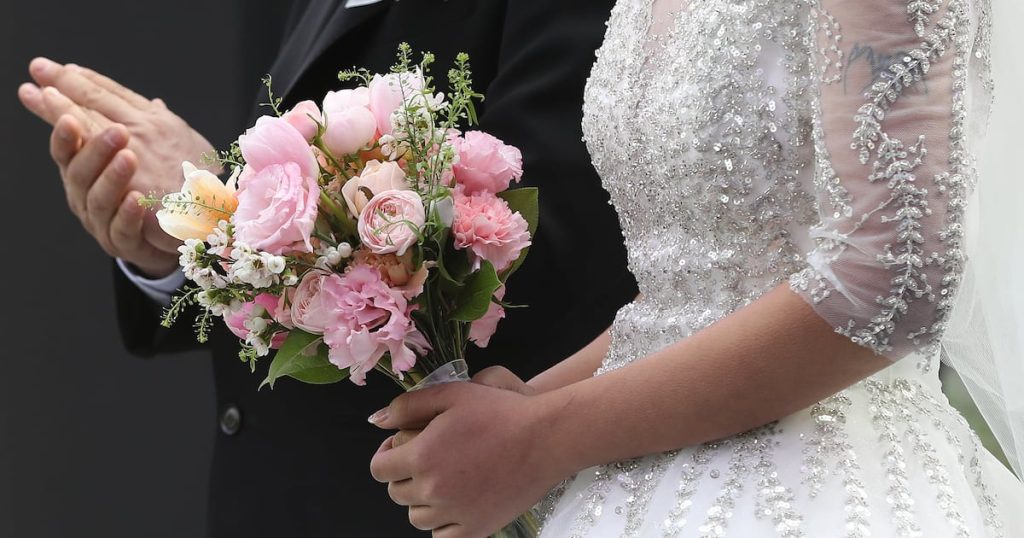Listen to the article
A South Korean woman has lost a lawsuit against a marriage agency after claiming she was misled about her prospective husband’s income, a court ruled Friday.
The Seoul Central District Court dismissed the plaintiff’s demand for a refund of her 6.6 million won (approximately $4,800) membership fee, which she paid to the matchmaking company in June 2022.
According to court documents, the woman joined the marriage agency after being told she would be introduced to men earning at least 80 million won ($58,000) annually. However, she later discovered the man she had been matched with earned substantially less than the promised amount.
The plaintiff argued that the agency had engaged in false advertising and deceptive business practices by misrepresenting potential matches’ income levels. She claimed this constituted a breach of contract that warranted a full refund of her membership fees.
In its ruling, the court acknowledged that while the agency had indeed made claims about minimum income requirements for male clients, these statements were not considered legally binding contract terms. Rather, they were viewed as “target standards” or aspirational guidelines that the agency would strive to meet.
“The agency’s explanation about income levels can be understood as a target standard rather than a minimum guaranteed condition,” the court stated in its verdict. “There is insufficient evidence to determine that the agency intentionally deceived the plaintiff.”
The case highlights the growing marriage agency industry in South Korea, where changing social dynamics and busy work schedules have led many singles to seek professional help in finding partners. These services have become increasingly popular as the country faces declining marriage rates and one of the world’s lowest birth rates.
Marriage agencies in South Korea typically charge substantial membership fees ranging from 3 million to 10 million won ($2,200 to $7,300), depending on the service level and duration. In return, they promise to match clients with suitable partners based on criteria including education, profession, physical appearance, and income.
Industry experts note that verifying client information remains a persistent challenge for these agencies. While many require documentation such as pay stubs or tax returns, the accuracy of such information can be difficult to guarantee.
“Agencies operate in a gray area where they need to balance client privacy with transparency,” said Kim Min-ji, a sociologist specializing in modern relationship dynamics at Seoul National University. “Unfortunately, this sometimes leads to cases where expectations don’t align with reality.”
This ruling could have significant implications for the matchmaking industry in South Korea, where consumer protection laws regarding such services remain relatively underdeveloped compared to other sectors.
The Korea Fair Trade Commission has previously warned marriage agencies about deceptive advertising practices, particularly regarding exaggerated claims about client profiles or success rates. However, enforcement has been limited, with most disputes resolved through private settlements rather than court proceedings.
Consumer advocates have called for stronger regulations following the ruling, arguing that marriage agencies should be held to higher standards of verification when making specific claims about their clients’ qualifications.
“When people pay substantial fees based on certain promises, there should be a reasonable expectation that those promises are verified and accurate,” said Park Sung-ho, a representative from the Consumer Rights Protection Association. “Without proper accountability, consumers remain vulnerable.”
The plaintiff has 14 days to appeal the ruling, though her legal representatives have not yet indicated whether they plan to pursue further legal action.
The marriage agency involved in the lawsuit has declined to comment on the case but stated that it maintains rigorous verification procedures for all clients and strives to create successful matches based on compatibility rather than solely financial considerations.
Fact Checker
Verify the accuracy of this article using The Disinformation Commission analysis and real-time sources.




12 Comments
Exploration results look promising, but permitting will be the key risk.
Good point. Watching costs and grades closely.
Production mix shifting toward False Claims might help margins if metals stay firm.
Good point. Watching costs and grades closely.
Silver leverage is strong here; beta cuts both ways though.
Good point. Watching costs and grades closely.
Nice to see insider buying—usually a good signal in this space.
Exploration results look promising, but permitting will be the key risk.
Good point. Watching costs and grades closely.
Exploration results look promising, but permitting will be the key risk.
Exploration results look promising, but permitting will be the key risk.
Good point. Watching costs and grades closely.